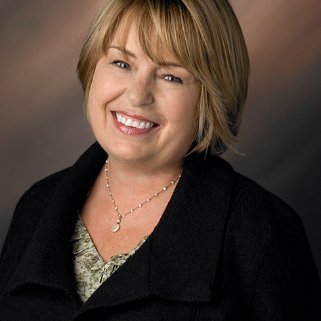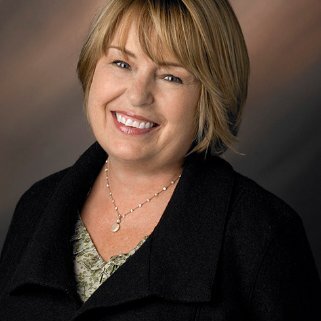I had the opportunity to go one on one with Jill Baskin, Chief Marketing Officer of The Hershey Company, as part of my Lessons in Leadership series in Thrive Global.
Jill oversees Consumer Insights, Campaign Development, Design, Media, Digital and Social Marketing for some of the most popular brands on earth. Prior to joining Hershey, Jill held the position of VP Global Brand Equity for Modelez International. During her time at Mondelez she developed campaigns for such iconic brands as Oreo, Cadbury Chocolate, Halls, Chips Ahoy, Belvita Breakfast Biscuits and others. Her campaigns garnered many industry awards and grew sales across multiple geographies. Jill spent much of her career honing her advertising and marketing skills in Chicago at Leo Burnett, where she rose through the ranks from Assistant Account Executive to Senior Vice President. Throughout her time at Leo Burnett, she managed domestic and global accounts for well-known brands like McDonald’s, Heinz, Toys R Us, Pillsbury, Miller Beer, Pepsi and United Airlines. In addition to her agency experience, Jill started her own strategic consultancy business to advise a wide range of clients. Jill is known for uncovering consumers’ deepest feelings about a product and translating those insights into successful marketing campaigns. When not on an airplane, Jill can be found in her kitchen cooking for her family and friends or at the ballpark cheering on the Chicago White Sox.
Here are some excerpts from our conversation:
Adam: What is the most important attribute of an effective CMO?
Jill:I think one of the most important attributes of a good CMO is having a firm understanding of all the functions—understanding media, data and technology and how you can use that data—and then knowing how to be a leader across those functions, because they are very different from each other and attract a wide variety of people. Leading as a CMO is challenging because you have to be able to collaborate across the spectrum of left-brain analysts and right-brain creatives.
Adam: What are three things everyone should understand about marketing?
Jill: First, you need a deep understanding of the consumer and whom you are marking to. You need insights. You cannot rely solely on good guesses or anecdotal information. Second, you have to understand the problem you’re trying to solve. What is preventing people from buying your product? Something is in the way. It could be price or lack of awareness or any number of things, but if you are not going after that root problem, you are just spending time and resources around the edges. And third, you have to understand culture. Really good marketers have a feeling for culture and immerse themselves in it. If you understand what is happening in the world, you can make decisions to either ride with the trends or differentiate by going against them.
Adam: What is your best advice for those working at big organizations on how to best climb the corporate ladder?
Jill: Don’t climb ladders, because when that becomes your focus, other people can feel it. They begin to mistrust you, and you don’t get their best. They’ll always keep a little something from you. Rather, figure out what you like to do and what you want to do. Discover your point of view, and then just do it the best you can. The more you collaborate, the more you will succeed, and you won’t be focused on the climb.
Adam: What is your best advice for entrepreneurs and those working at small businesses on how to cultivate relationships and sell to large companies?
Jill: The hardest thing for small businesses to understand is scale. Big companies want to provide for everybody all at once. Before you can even think about relationships with big companies, you have to ask yourself honestly, “Can I operate at the level that a big business is looking for?”
Adam: How do you envision Hershey’s marketing efforts evolving over the next five to ten years?
Jill:There is a soft space between the traditional agency role and business needs, so I think we’ll see more creative coming in-house. Brands will develop the ability to turn creative around quicker and more efficiently than under the current model without compromising quality. The need for quick-turn creative is elevated by the fragmenting of media. And when you couple the fragmented media with more and more consumer data becoming available, the media landscape and how it is consumed changes dramatically. This combination of data and media will also let us target customers more personally and one-to-one. And, of course, e-commerce is the growing piece that brings it all together.
Adam: What are your three best tips applicable to entrepreneurs, executives and civic leaders?
Jill: For me, I firmly believe you need to have a bottomless amount of curiosity. Fostering curiosity is something I try to do with all my people. Curiosity doesn’t always mean that you find the answers, either. Sometimes, simply sharing your curiosity and having the team explore that idea or issue is a great way for the team as a whole to become more curious and eager to dive into new things. I also think leaders need to set a strong vision and allow teams to define how they are going to help get there. Clarity of the vision is critical. And finally, kindness and collaboration are essential. A good leader is someone who listens to the curiosity of others and helps them build on it. You’re never too old or too high up in an organization to listen to those “below” you to help the business. The more you can do that the better.
Adam: In your experience, what are the defining qualities of an effective leader? How can leaders and aspiring leaders take their leadership skills to the next level?
Jill: The best and most authentic leaders are the ones who lead from their strengths and figure out how to share them with others. Good leaders understand that their strengths are only a piece of the puzzle and that other team members bring unique skills, too. The idea of a leader who shares is something that is really important to me. A great way for new leaders to learn about themselves and how to be effective is to have a coach or a mentor. Your learning can’t stop when you become the leader. A coach or mentor is a great source of objectivity to help you keep growing in your role and maintaining your curiosity and desire to improve as a leader.
Adam: What is the single best piece of advice you have ever received?
Jill: Stop selling. Become customer centered and don’t sell your idea. Find out what people don’t like by asking them. Don’t try to convince them that you or your solution are right. Find out the problem from their perspective, and try to address it.
For the full interview, visit https://thriveglobal.com/stories/tips-from-the-top-one-on-one-with-jill-baskin-chief-marketing-officer-of-hershey/









